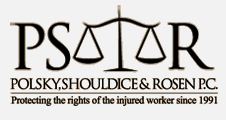How Does Workers Compensation Work? | Baltimore Personal Injury Law
Sustaining an employment-related injury can have serious financial consequences for a laborer who may face the prospect of being out of work for a long duration of time. Fortunately, most companies, organizations, and places of business offer their workers workers compensation insurance to protect them in such instances.
What Is Workers Compensation?
Also referred to as workman’s compensation, this state-mandated, employee benefit is a form of insurance purchased by employers. It’s intention is to cover its labor force should any member sustain an on-the-job injury or related illness that precludes them from performing their duties. In most instances, the worker receives benefit payments regardless of who was responsible for causing the incident that led to their disability.
What Kind of Accidents Are Included Under Workers Compensation Insurance?
Most work-related accidents are covered under the umbrella of this type of insurance. However, benefit claims can be denied under some circumstances.
- An employer may not be required to submit payments to any worker proven to be intoxicated or working under the influence of drugs at the time of an incident.
- Some states mandate that injured workers be tested for drugs and/or alcohol use immediately following a work-related accident.
- Employees may be barred from receiving benefits if they were shown to have violated the law or company policy, or if their injuries were deemed to be self-inflicted.
What Damages Can Injured Workers Expect to Recover?
Damages typically include:
- Income replacement.
- Medical expenses.
- Survivor benefits if the worker was killed in the accident and left dependent children or relatives.
- Retraining education expenses.
More often than not, an injured worker can expect to receive two-thirds of the wages that they were earning when gainfully employed. That said, workers compensation is not subject to income taxes and usually starts after only a few days of work are missed. Another positive attribute of workers compensation is that benefits are not merely limited to employees who suffered acute injuries. Ailments that developed over long periods of time and are the result of repetitive strenuous activities, such as carpal-tunnel syndrome may also be subjected to benefits.
Who Is Eligible for Workers Compensation?
Most employees are eligible to receive this type of insurance. However, certain groups of workers are excluded. They include:
- Maritime workers.
- Farmers.
- Railroad employees.
- Independent contractors.
- Volunteers.
- Business owners.
- Employees of private home, such as nannies.
Can an Employee Sue His or Her Employer?
An employee has the legal right to file a lawsuit against his or her employer in the hopes of collecting damages in the wake of an accident. It is important to note, however, that once the employee takes such action, he or she waives their right to receive workers compensation. Furthermore, winning a lawsuit will require the worker to prove his or her employer displayed some degree of negligence resulting in their accident. Some additional drawbacks of a trial include:
- The fact they can be drawn out.
- Will likely require the employee to hire the services of an experienced personal injury lawyer, whose fees can be expensive if the trial is lengthy.
- Offer no guarantee of success and, in if a judge or jury finds in favor of the employer, could leave the employee facing a situation where they receive little, or possibly no compensation for his or her injuries.
If you have questions or concerns about workers compensation benefits, contact a lawyer, like experienced Nassau County workers compensation attorneys, today.
 Thanks to our friends and contributors from Polsky, Shouldice & Rosen, P.C. for their insight into workers compensation practice.
Thanks to our friends and contributors from Polsky, Shouldice & Rosen, P.C. for their insight into workers compensation practice.
